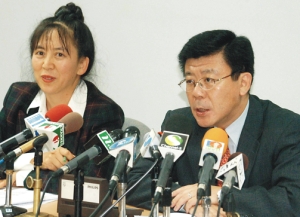Macroeconomic indicators still positive but challenges ahead
Says ADB South Asia DG
Star Business Report
The country's macroeconomic fundamentals still remain positive, although a number of challenges continue to pose risks to the macroeconomic performance in the period ahead, said Kunio Senga, director general of South Asia Department (SARD) of Asian Development Bank (ADB), yesterday.He said transitional political climate ahead, weak infrastructure and under-pricing of energy products are the main challenges the macroeconomic performance will face in the days to come. "Even with a difficult political environment, Bangladesh maintained prudent macroeconomic policies and made significant progress in implementing reforms, albeit with some delay, particularly in power and railway sectors," he observed. "Our discussions with the government also focused on spearheading sectoral reforms, including those in power and transport sectors, and enhancing regional cooperation". Senga was speaking at a press conference at ADB's Bangladesh office in Dhaka on the last day of his three-day visit. During the visit, Senga met finance minister and other senior government officials to discuss sector and policy reforms. Accompanied by ADB's South Asia Regional Management Team members, Senga also participated in a roundtable on 'ADB's Bangladesh Country Programming for 2007-2009'. Hua du, ADB country director, Sultan Hafeez Rahman, deputy director general of SARD, Hun Kin, director of Urban and Development Division, Ashok Sharma, director of Governance, Finance and Trade Division, Bae Song, principle energy specialist of Energy Division of the bank, among others, were present at the press conference. Meanwhile, during his visit ADB settled its assistance programme for Bangladesh for 2007-2009. During the period ADB is proposing an average annual lending level of $ 600 million for the country. Welcoming the government decision to increase fuel prices by 10 to 30 percent on June this year, Senga said the latest fuel price increase will reduce fuel subsidy by about $ 250 million. When asked about Tata's investment in Bangladesh, he said ADB is not directly involved in Tata's investment proposal. "However, we closely monitor the proposals and intend to assist the infrastructure development side of the proposal." He said, "We believe the investment proposal has great potential. The Tata's investment will bear positive impact not only on the sectors that the company wants to invest in but also on many other sectors." Regarding ADB's $ 600 million, he said the bank assistance will be disbursed for energy, transport, education and urban infrastructure development of the country. Hua Du said there is no doubt that Tata's investment proposal would bring significant change to the country's economy, but it is a complicated issue and needs further discussion. She said ADB will give a balanced view on the issue shortly.
|

Kunio Senga, director general of South Asia Department (SARD) of Asian Development Bank (ADB), speaks at a press conference in Dhaka yesterday while Hua du, ADB country director, looks on. PHOTO: STAR |